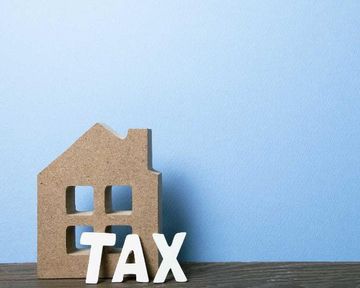New Property Practitioners Act provides better protection for all
By Peter Mennen, Head of Legal at TPN Credit Bureau
The new Property Practitioners Act (PPA), which came into effect on 1 February 2022, has been designed for increased support and regularisation of the sales and rental industries and other immovable property professions. Through updated processes, better clarity and new administrative practice, all property practitioners holding Fidelity Fund Certificates (FFC) may consider the Act to be an improvement on the recently repealed legislative parameters.
Who does the Property Practitioners Act apply to?
The Act broadens the definition of a property practitioner substantially to include anybody, who for the acquisition of gain or remuneration sells, leases, or manages property, including commercial and residential sales and rental agents, property and business brokers, and property auctioneers. It also includes property and asset and portfolio managers who manage properties on behalf of another party.
Although further clarification is required, it appears that mortgage or bond originators do not fall under the definition of a property practitioner - bond brokers have been excluded should they be defined as a financial institution in terms of the Financial Sector Regulation Act.
All those defined as property practitioners - even practicing estate agents who are not registered - need to be registered as property practitioners with the Property Practitioners Regulatory Authority (PPRA) by 31 October 2022. The PPRA replaces the Estate Agency Affairs Board with an expanded mandate to govern the property profession and other previously excluded professions rather than only estate agents.
Those excluded from the definition of a property practitioner include private landlords renting out property or a private individual selling their own property, as well as attorneys or candidate attorneys registering property sales, or collecting property rentals - these individuals do not need to be registered as property practitioners.
Property practitioners who are not registered with the PPRA and who do not hold a valid Fidelity Fund Certificate are not entitled to receive remuneration or commission.
What action do property practitioners need to take?
Fidelity Fund Certificates: There are a number of technical and administrative details that property professionals are required to complete and be compliant with prior to registration. All registered property practitioners, including those who earn a commission from the sale or lease of a property, are required to have a valid FFC which must be produced on request.
FFCs are required to be available and visible at the property practitioner’s physical place of business, including websites if transactions occur online. All property transaction agreements must now include a prescribed clause guaranteeing the validity of their certificate. Luckily for all property practitioners, the certificate will now be valid for a period of 3 years.
Tax Clearance and BEE Certificates: The new Act includes updated regulations around FFCs including the need for a valid tax clearance and BEE certificate. Both property practitioners and the businesses they represent must be registered and compliant.
Auditing: A property practitioner’s trust account has to be audited on an annual basis and the details of the auditors made available to the authority. However, property practitioners whose business turnover is less than R2.5 million a year, do not need to be audited and can instead have their financial statements reviewed by a qualified accountant.
The new act also makes provision for property practitioners who don’t receive money into their trust accounts, in which case they can apply to be exempt from an audit, nor would they even need to have a trust account.
Marketing Material: While a property practitioner’s marketing material does not need to include their FFC number, it does need to contain the provisions that the property practitioner is registered with the PPRA.
Mandatory Disclosure Document: The PPA requires property practitioners to include a disclosure form which details a comprehensive list of property defects from the seller or lessor before a mandate is concluded. The inclusion of these disclosure forms, which needs to be signed by all parties, is now a mandatory requirement for all property sales and lease agreements and no mandate may be accepted from a seller or a landlord without this document attached
This means that prior to an estate agent being granted a mandate, they must ensure that the disclosure form is available. This may just lead to more property practitioners signing and implementing legislatively compliant written mandate agreements, protecting the property practitioner in a way that verbal agreements simply cannot.
In the event that the mandatory disclosure form is not attached to the lease or purchase agreement, the property practitioner could be held liable by the tenant or buyer and this can be reported to the PPRA through a new complaints, mediation and adjudication process. Although the disclosure form is not mandatory if the sale is a private one, it is recommended that it be included in the event of latent or patent defects to the property.
Regardless of the evident administrative burden, the Act and corresponding regulations should be viewed as an opportunity. An opportunity for the industry body to promote diversity, transformation and regularisation. An occasion for the property practitioner to improve business practice, promote enhanced compliance and through this, safeguard their own continued success.

